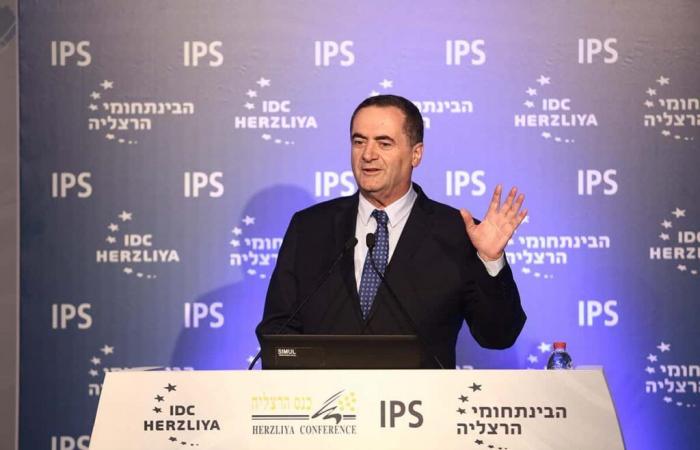– Advertisement –
Israeli Defense Minister Israel Katz said Tuesday that if last week’s ceasefire collapses, Israel will adopt a more aggressive strategy and directly target the Lebanese state. “If we return to war, we will act with greater force, penetrate deeper and… there will no longer be immunity for the State of Lebanon,” he said during a visit to Israel’s northern border.
Until now, Israel had distinguished between Lebanon and Hezbollah, focusing its strikes on the Iran-backed organization’s infrastructure and members. But Katz warned that this distinction would end if hostilities resume.
Growing tensions despite ceasefire
These statements come after a wave of Israeli strikes which killed nearly a dozen people. The actions followed Hezbollah firing two projectiles toward an unpopulated occupied area, which the group called a “warning” against Israeli violations.
Since the agreement came into force, Israel has carried out several strikes in response to what it sees as ceasefire violations by Hezbollah. Before Hezbollah’s projectiles on Monday, Israel carried out at least four airstrikes and artillery attacks in southern Lebanon, according to local sources. A drone strike killed a motorcyclist, and another caused the death of a corporal in the Lebanese security services.
The conditions of the ceasefire agreement
The ceasefire, brokered by the United States and France, provides for a 60-day period for Israel to withdraw its troops from Lebanon and for Hezbollah to relocate its military infrastructure north of the Litani River. A buffer zone will then be secured by the Lebanese army and UN peacekeepers. So far, however, the implementation of these provisions has been undermined by mutual accusations of violations.
Lebanon says Israel has violated the ceasefire more than 50 times, including airstrikes, destruction of homes and aerial incursions over the capital Beirut. Israel, for its part, maintains that its strikes are aimed at responding to Hezbollah’s arms and infrastructure movements south of the Litani, which would constitute a major breach of the agreement.
A possible strategic change
During his visit to the northern border, Katz also warned that any violation of the ceasefire would be met with a maximum response, marking a stance of “zero tolerance.” He stressed that if the war resumed, Israel would expand its targets beyond areas traditionally linked to Hezbollah and that there would be “no more exemption for the State of Lebanon.”
During the 14 months of conflict with Hezbollah, Israel had avoided directly targeting Lebanon’s vital infrastructure or the Lebanese army, which had remained largely in the background. However, many Lebanese civilians and soldiers were killed or injured during the hostilities. Katz’s threat to strike state targets marks a significant hardening in Israeli posture.
Regional and international consequences
The hardening of the Israeli position could have important consequences for regional stability. An escalation that directly involves the Lebanese state would risk escalating tensions with other regional actors, notably Iran, which supports Hezbollah. The international community, and particularly the American and French mediators, could also be put under pressure to intervene quickly and keep the agreement in place.
On the Lebanese side, accusations against Israel are intensifying, with officials denouncing the destruction and incursions as blatant violations of the country’s sovereignty. Hezbollah, despite having respected the ceasefire for several days, said its firing on Monday was a response to Israeli actions.
The future of the ceasefire in question
The situation remains extremely fragile. While both sides publicly affirm their commitment to the deal, actions on the ground indicate otherwise. If Israel intensifies its strikes and expands its targets, it could lead to an increased response from Hezbollah, and hostilities could resume on a large scale.
The role of the United States, France and the UN will be decisive in maintaining communication between the parties and avoiding a new escalation. But the risk of the agreement collapsing remains high, particularly in a context of mutual distrust and repeated violations.
– Advertisement –






